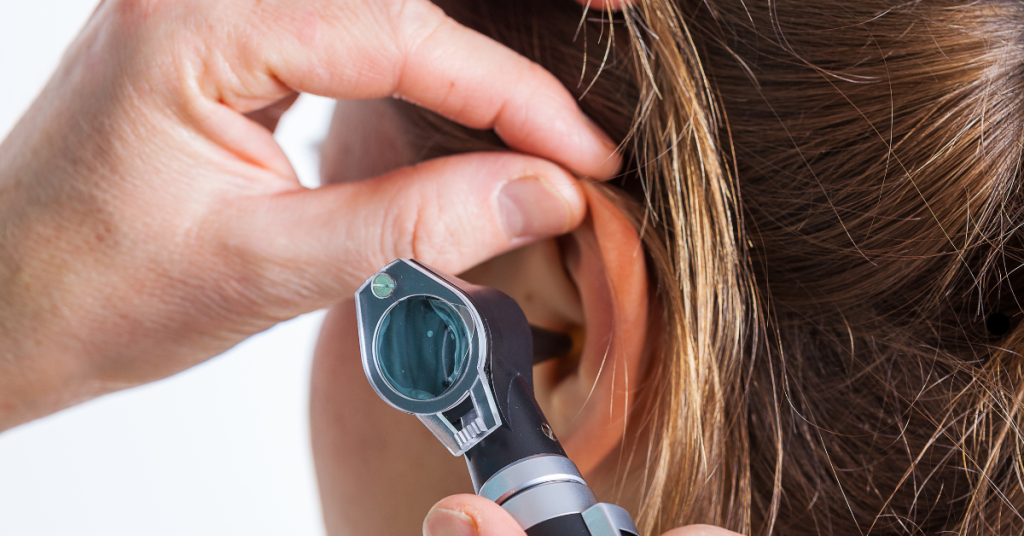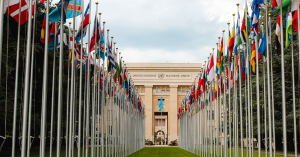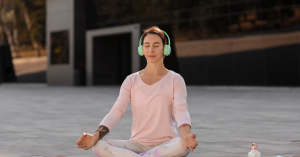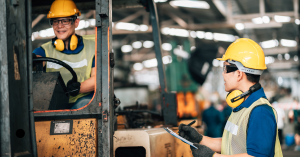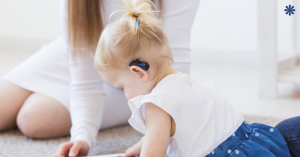Hearing loss affects millions of people worldwide, yet it often goes unnoticed, undiagnosed, and untreated. Many individuals delay getting help for years—either due to stigma, lack of awareness, or simply not knowing where to start. In communities everywhere, there’s a growing need for accessible, engaging ways to educate the public about hearing health and the resources available to them.
This is where community events come in. From local health fairs to mobile screening days and educational seminars, these events serve as powerful platforms to raise awareness, reduce stigma, and provide direct support to individuals who may be struggling with hearing issues. More than just information sessions, they bring together professionals, advocates, and everyday citizens in a shared mission to promote better hearing and healthier lives.
In this article, we’ll explore how community events are shaping the future of hearing health. We’ll look at why public awareness is so critical, the different types of events making an impact, and how these gatherings help bridge the gap between knowledge and action. Whether you’re a community organizer, healthcare professional, or simply someone who wants to get involved, this guide will show how local efforts can lead to lasting change.
Why Hearing Health Awareness Matters
Despite being one of the most common health concerns worldwide, hearing loss is often misunderstood and overlooked. Many people associate hearing loss solely with aging, assuming it’s inevitable and untreatable. Others may not even realize they’re experiencing hearing difficulties, especially when the changes occur gradually. As a result, hearing loss frequently goes unaddressed—sometimes for years.
According to the World Health Organization, over 1 billion young people are at risk of noise-induced hearing loss, and nearly one in three adults over the age of 65 lives with some degree of hearing impairment. Yet, studies show that people wait an average of seven to ten years after first noticing symptoms before seeking help. This delay can lead to serious consequences, including social isolation, depression, reduced income potential, and even increased risk of dementia.
Public awareness is the first step in reversing these trends. When individuals understand the signs of hearing loss and know that help is available, they are more likely to seek early screening and treatment. Awareness also empowers families and caregivers to recognize symptoms in loved ones and encourages supportive conversations around hearing health.
Raising awareness isn’t just about education—it’s about reducing stigma. For many, the idea of wearing hearing aids or acknowledging a hearing issue still carries negative connotations. Community-based education helps shift these perceptions, reframing hearing care as a normal and empowering part of lifelong health maintenance.
Moreover, increased awareness can lead to better health outcomes and lower healthcare costs. Early intervention often means simpler, more effective solutions. By catching issues early—whether through a simple screening or an informational seminar—communities can reduce the burden on healthcare systems and improve quality of life for individuals of all ages.
That’s why hearing health awareness isn’t just a medical concern—it’s a community responsibility. In the next section, we’ll explore the types of events that are helping communities meet this responsibility head-on.
Types of Community Events That Promote Hearing Health
Community events come in many forms, but when it comes to promoting hearing health, the most effective ones combine accessibility, education, and personal engagement. These gatherings not only inform the public about hearing loss but also connect them to resources and professionals who can help. Let’s explore some of the most impactful types of events being used across communities to raise awareness and encourage action.
Health Fairs and Wellness Expos
Health fairs are among the most common platforms for promoting hearing health. These events often include booths or stations where attendees can receive free or low-cost hearing screenings, talk with audiologists, and pick up informational brochures. Some include live demonstrations of hearing aids or communication tools, giving people hands-on experience with technology they may have never seen up close.
Hearing Screening Days
Targeted screening events—held at senior centers, libraries, community centers, or religious institutions—provide accessible hearing checks without requiring a clinic visit. These are especially helpful for older adults or individuals with mobility challenges. In some communities, mobile screening vans visit neighborhoods, providing services directly where people live.
Educational Workshops and Seminars
Knowledge is power, and workshops can dive deeper into specific topics like recognizing early signs of hearing loss, protecting ears from noise exposure, and understanding insurance coverage for hearing devices. These seminars may feature guest speakers, including audiologists, ENT specialists, and even people sharing their own hearing journeys.
Hearing Aid Demonstration Events
Events hosted by hearing aid providers or community organizations sometimes focus on new technology—from Bluetooth-enabled devices to rechargeable hearing aids. Attendees can test devices, ask questions, and learn how the latest innovations might fit into their lifestyle.
School and Youth Programs
Reaching young people is just as important. Some schools and youth organizations host workshops on noise-induced hearing loss, especially for students who regularly use headphones or attend loud concerts. Interactive games, sound-level demonstrations, and safe listening challenges can make these lessons both fun and memorable.
Cultural and Multilingual Outreach Events
In diverse communities, events tailored to different cultural or language groups help break down barriers. Bilingual presentations, translated materials, and culturally sensitive approaches ensure that no one is left out of the conversation.
Each of these events has its own strengths, but all share a common goal: to make hearing health approachable, relatable, and actionable. In the next section, we’ll look more closely at how these events help remove barriers and increase access—especially in communities that need it most.
Making Hearing Health Accessible to All
One of the most powerful benefits of community-based hearing health events is their ability to break down barriers—particularly for populations who often lack access to care. Whether due to financial limitations, transportation challenges, language barriers, or a lack of information, many individuals go without the hearing support they need. Community events help close these gaps by meeting people where they are—literally and figuratively.
Reaching Underserved Populations
Many people in rural areas or low-income urban neighborhoods have limited access to audiologists or hearing care clinics. Community events that include mobile hearing screenings, free consultations, or transportation assistance make a significant difference. By setting up in churches, senior centers, schools, or community halls, these events become trusted, convenient points of access.
Multilingual and Culturally Inclusive Outreach
Language and cultural differences can also prevent people from seeking help. Community organizers are increasingly recognizing the importance of bilingual staff, translated materials, and culturally sensitive messaging. Events that include interpreters or outreach efforts specific to immigrant communities help ensure inclusivity and greater understanding of hearing health topics.
Partnerships with Local Organizations
Collaboration with local agencies amplifies reach and credibility. For example, teaming up with senior service centers, veterans’ organizations, or community health departments allows hearing health professionals to integrate services into trusted networks. These partnerships often result in higher attendance and greater follow-through after the event.
Accessible Education for All Ages
Community events also help make hearing health education more accessible by offering materials in multiple formats—such as printed handouts, visual aids, and digital presentations. Some events include live captioning or sign language interpretation, ensuring that attendees with existing hearing impairments can fully participate.
Low-Cost or Free Resources
Cost is a major barrier to hearing care. Many events offer free earplugs, discounted hearing aids, or vouchers for follow-up audiology services. Providing low-cost access removes a major obstacle and encourages more people to take the first step toward better hearing.
By making hearing health information and services available in comfortable, familiar environments, community events empower individuals to take control of their auditory well-being. In the next section, we’ll explore how storytelling and peer advocacy play a role in reducing stigma and encouraging participation.
The Power of Storytelling and Peer Advocacy
While facts and figures can educate, it’s often personal stories that inspire real change. At community events focused on hearing health, storytelling and peer advocacy play a crucial role in shifting attitudes, reducing stigma, and motivating people to take action.
Real People, Real Impact
When someone shares their journey—from the first signs of hearing difficulty to receiving a diagnosis and eventually embracing hearing aids—it resonates deeply with attendees. These stories create emotional connections and help others feel less alone. Hearing a peer say, “I wish I’d gotten help sooner” often carries more weight than any brochure or data point.
These testimonies humanize the experience of hearing loss and can dispel common fears: fear of judgment, fear of change, or fear of wearing a device. Storytellers become relatable role models who show that adapting to hearing challenges is not only possible but empowering.
Peer Educators and Community Ambassadors
Some events train individuals with hearing loss to become peer educators or hearing health ambassadors. These individuals often lead workshops, facilitate discussions, or serve as friendly points of contact during events. Their lived experience builds trust and encourages attendees to ask questions they may not feel comfortable bringing to professionals.
Having someone who “looks like me” or “has been through it” helps reduce the intimidation factor and encourages openness. This is especially important in cultures or communities where seeking help for hearing loss may be seen as a sign of weakness or decline.
Social Media and Storytelling Campaigns
In today’s digital age, community events often extend their impact beyond the event itself. Short video testimonials, event recaps, and quote graphics can be shared on social media platforms to reach a broader audience. These online stories encourage those who couldn’t attend to get involved or seek help.
Some organizations run ongoing campaigns that highlight a “Story of the Week” or encourage people to share their own experiences using hashtags. These campaigns build momentum, normalize conversations about hearing health, and keep the issue in the public eye.
Storytelling as Advocacy
Personal stories don’t just help individuals—they can also influence policy and funding. Testimonials collected at community events are sometimes used in advocacy efforts to secure grants, expand public health programs, or push for insurance reforms that make hearing aids more affordable.
In essence, when community members share their voices—literally and figuratively—they amplify awareness and spark action in powerful ways. In the next section, we’ll explore how to organize or support these events, so more people can benefit from their impact.
Planning and Supporting Local Hearing Health Events
Organizing or supporting a hearing health event may sound daunting, but with the right planning and partnerships, it can be both manageable and highly impactful. Whether you’re a healthcare provider, community leader, nonprofit organizer, or concerned individual, you can help bring awareness and resources to your community.
Start with a Clear Goal
Every successful event begins with a clear objective. Do you want to raise general awareness, offer free screenings, educate on noise prevention, or connect people with hearing aid services? Your goals will determine the format, location, and partners involved.
Partner with Professionals
Collaborating with local audiologists, hearing aid providers, ENTs, and public health departments is key. These professionals can provide expert presentations, conduct screenings, and answer questions. Many are willing to volunteer their time, especially if the event helps them reach new patients or fulfill community outreach goals.
Choose the Right Venue
Accessibility is critical. Libraries, senior centers, churches, community centers, and local fairs all make excellent venues. Look for locations with ADA-compliant facilities, ample parking, and high visibility. Mobile clinics can serve remote or rural areas effectively.
Promote the Event Widely
Use flyers, email newsletters, social media, and local radio or newspaper ads to get the word out. Partnering with local organizations (e.g., senior groups, schools, community associations) can extend your reach. Don’t forget multilingual materials if your area is diverse.
Make It Engaging
Offer a mix of educational content and interactive experiences. Consider including:
- Free hearing screenings
- Q&A panels with hearing health professionals
- Device demonstrations
- Storytelling sessions or peer talks
- Raffles or giveaways (like earplugs or hearing aid batteries)
Include refreshments and informal areas for conversation. A welcoming atmosphere helps attendees feel comfortable asking questions and engaging with services.
Measure and Follow Up
Track attendance and collect feedback through surveys or comment cards. This information can help improve future events and demonstrate value to sponsors or grant providers. If possible, offer referrals or follow-up support so that attendees can take the next step in their hearing health journey.
Support Even If You’re Not Organizing
Not everyone has the time or resources to plan an event—but you can still contribute by:
- Volunteering at a local event
- Spreading the word to friends and family
- Donating to organizations that promote hearing health
- Sharing stories or testimonials to inspire others
Community-based hearing health initiatives thrive when people come together with a shared purpose. Your involvement—big or small—can make a lasting difference.
Next, we’ll bring all these ideas together in the conclusion and offer a final call to action for readers to get involved.
Conclusion
Hearing health is often overlooked until it becomes a major barrier to communication, connection, and quality of life. But community events are changing that—by bringing awareness, education, and resources directly to the people who need them most. Whether through a local health fair, a mobile screening van, or a storytelling seminar, these gatherings help normalize conversations about hearing loss and inspire individuals to take proactive steps.
Community events work because they are personal, local, and engaging. They help break down barriers of cost, stigma, and access, while offering opportunities to connect with experts and peers alike. Through partnerships with healthcare providers, nonprofits, and local leaders, these events become powerful engines of change—turning education into empowerment and awareness into action.
For older adults, caregivers, and anyone concerned about hearing health, getting involved in these events—whether as a participant, volunteer, or advocate—can make a real difference. By supporting or organizing hearing health events in your community, you contribute to a movement that improves lives, one conversation at a time.
Let’s build better hearing together—starting right where we live.
FAQ
Why are community events important for hearing health awareness?
Community events provide direct access to education, screenings, and support in familiar, trusted environments. They help people recognize early signs of hearing loss, reduce stigma, and connect attendees with local professionals and services—especially in underserved areas.
What types of services are usually offered at hearing health events?
Common services include free or low-cost hearing screenings, educational presentations, hearing aid demonstrations, and consultations with audiologists. Some events also provide printed resources, multilingual support, and follow-up referrals.
How can I find a hearing health event in my area?
Check with local health departments, senior centers, libraries, or hearing health organizations. You can also follow nonprofits and audiology clinics on social media or sign up for newsletters to learn about upcoming events.
Can I organize a hearing health event in my own community?
Yes! With the help of local partners—like audiologists, clinics, or health agencies—you can organize workshops, screenings, or information sessions. Many professionals are willing to volunteer for community outreach, and resources may be available through grants or donations.
How can storytelling help promote hearing awareness?
Personal stories from people with hearing loss help normalize the experience and encourage others to seek help. Sharing testimonials at events or online builds empathy, reduces stigma, and inspires others to take action on their hearing health.
This article is for informational purposes only and is not a substitute for professional medical advice, diagnosis, or treatment. If you are concerned about your hearing or ear health, please consult a qualified healthcare provider.


